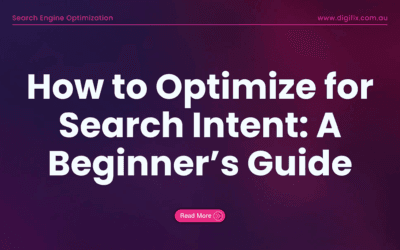In the current digital age, a website is essential for any business looking to build a powerful online presence. Anyway, simply creating a website is not sufficient. You have to ensure that your website is visible to your target audience. So, you should optimize your website for search engines.
This is where search engine optimization comes into play. Among the three types of SEO, today, our discussion is about Technical SEO. This blog is a simple guide on technical SEO for beginners.
Check out our latest video on Technical SEO
Section 1: Understanding Technical SEO (Technical SEO for beginners)

What is SEO?
Search Engine Optimization (SEO) is the process of optimizing websites & content to increase visibility & search engine rankings. SEO is a broad process that includes tactics like keyword research, link building, quality content & more.
Are you new to the world of SEO? Then our blog on Search Engine Optimization (SEO) guide will be perfect for you. Click the link below to read our blog.
Guide to Search Engine Optimization.
There are 03 types of SEO as below,

On-page SEO- On-page optimization involves things you do within your website to increase search engine ranking & visibility. In On-page optimization, you focus on website content, image optimization, keywords, title tags, meta descriptions, URLs, internal linking & more.
Off-page SEO- This SEO focuses on external factors that impact the website ranking & visibility on search engines. For example, link building, guest posting & more.
Technical SEO- This SEO focuses on optimizing the technical elements of a website to boost its rankings & visibility. For example, site speed, mobile-friendliness, security, crawlability & more.
Since this blog is a guide to Technical SEO for beginners, we will discuss Technical SEO basics from here onwards.
What exactly is Technical SEO?
In simple terms, Technical SEO is optimizing (enhancing) a website to help search engines find the website, crawl & understand it & index that website. The ultimate goal is to increase website visibility & boost search engine rankings.
In advanced terms, Technical SEO refers to optimizing technical aspects of a website to increase visibility & rankings on search results.
So, why should you help search engines like Google find your website? Because there are thousands of websites on the internet that have similar content to yours. So, when someone searches for things related to you, you must stand out from others.
That is why you should help Google to crawl you, understand you & index you. Otherwise, your website will be forever hidden from your target audience.
Since this blog article is a guide on Technical SEO for beginners, we will make sure to explain in a simple way about every basic thing of technical SEO.
Why is Technical SEO important?
Now you may be wondering, “Why is technical SEO important for my website?” Well, we are going to tell you why.
Technical SEO ensures that Google & other search engines can crawl your website effectively, understand your website & index it. Then if you have quality & relevant content on your website, Google will put your website in higher rankings on search engine results pages.
A website with technical issues like broken links and slow page load speed negatively impact your rankings & visibility. If you have a good technical SEO strategy, you can identify technical issues on your website & fix them. It will enhance user experience & help search engines crawl & index your website.
Benefits of Technical Search Engine Optimization:
Since this is a guide on Technical SEO for beginners, we can’t forget the benefits you can get from an effective technical SEO strategy.
1.Make sure that your website is crawled & indexed.
A good Technical SEO plan helps search engine spiders easily access your website & crawl website content. It helps web pages rank higher in search results.
2.Faster page load speed.
Page load time is a critical factor for a website. If it takes a long time to load, the bounce rate will be higher. But technical SEO helps to increase loading speed & better user experience.
3.Enhance mobile-friendliness.
Since many internet users access websites using mobile devices, it is important to have a mobile-friendly website. Technical SEO helps with that.
4.Increase security.
Technical SEO helps to identify issues that will be a threat to website security & fix them. So, your website & users will be protected from potential threats.
5.Increase the user experience.
Technical optimization makes sure your website is easy to navigate, loads fast & has zero security threats. And it leads to a better user experience.
6.Increase website traffic.
A good technical optimization strategy boosts your search engine ranking & increases your organic traffic.
7.Favorable conversion rates.
A positive user experience always leads to better conversion rates.
The relationship between Technical optimization & other types of SEO:
Technical SEO is closely related to on-page optimization & off-page optimization.
On-page optimization involves enhancing website content to boost its ranking on search engines. On-page optimization is related to technical SEO because both focus on increasing the user experience of a website & make a website accessible for search engines & users.
Off-page optimization focuses on enhancing website reputation & authority through external factors such as link building, reviews & social media. Off-page SEO is related to technical SEO because technical issues like slow page speed & broken links ruin the reputation of the website.
In conclusion, technical optimization, on-page optimization, and off-page optimization are all connected components of a productive SEO strategy. By combining these three types of SEO, website owners can achieve higher search engine rankings, better user experience, and more organic traffic to their websites.
Tools for Technical SEO:
There are many tools you can use for technical SEO. Here is a summary of those tools for your reference.
- Google Search Console- GSC is a free tool from Google that helps website owners to check website performance, identify crawling errors & more. The benefits from GSC are invaluable as it is free. Refer to our blog article on Ultimate Guide to Google Search Console.
2.SemRush – SemRush is the go-to tool many SEO agencies use. It is an incredible tool that helps with keyword research, backlink analysis, position tracking, content marketing & more. This tool offers many features that help with technical SEO.
3.Screaming Frog- This is a tool that will crawl your website & identify technical errors like broken links & duplicate content.
4.Ahrefs- With Ahrefs, you can do site audits, backlink analysis & keyword research.
5.Page speed insights- A free tool from Google that will analyze your website speed & provide suggestions to optimize.
With these tools, you can identify and fix technical SEO issues that prevent your website’s performance and search engine visibility.
Section 2: Understanding Crawling

What is Crawling | In simple terms
Search engines have bots called spiders that explore the content of a website & help to index them. Think of these bots as real spiders that visit a website, crawl a website from one page to another & collect information about that website.
They collect information such as titles, meta descriptions, content, links & images. Then this information is stored in the search engine index. It is a database that includes information on web pages crawled by crawlers.

Crawling is an essential part of search engine optimization (SEO). According to this information, search engines determine the relevance & authority of web pages which are the ranking factors of search engines.
How to control what spiders crawl on your website?
There are several ways to do this,
Robot txt file- A robot txt file is a text file that is placed in the root directory of your website. It explains to search engines which pages to crawl & which pages to exclude. If you do not want certain pages to get crawled, you can control it through this file.
Meta Robot tag- A part of HTML code in the head section of your website that tells search engines whether to index a certain web page. Use No index value to prevent indexing a web page.
XML sitemaps- A file that lists pages on your site that you want to get indexed by search engines. You can highlight the most important pages to crawl your website in xml sitemaps.
Canonical tag- An HTML tag that indicates the preferred URL of a page. It avoids duplicate content & makes sure the right page is indexed by search engines.
Section 4: Technical SEO best practices
What are the Technical SEO best practices?
In our Technical SEO for beginners guide, we thought to share some Technical SEO best practices that would be helpful for you.
1.Conducting technical SEO audit.
The primary goal of a technical SEO audit is to identify technical issues that negatively impact your search engine rankings. You can evaluate the technical elements of your website to ensure that your website is optimized for search engines.
Analyze the site architecture, page load speed & performance, mobile-friendliness, schema markup, structured data, and site security to complete an effective Technical SEO audit.
2.Solving crawlability issues.
Addressing crawlability issues is essential to help search engine bots crawl & index your web pages. If there are crawlability issues, search engines face difficulties identifying important pages to index. The consequence is the website gets lower ranks in search engine results pages.
Examples of crawlability issues are broken links, duplicate content, missing pages & incorrect robot.txt files.
You can use tools like Google Search Console to identify crawling errors & address them.
3.Increasing site speed & performance.
Site speed & performance impact both user experience (UX) & search engine rankings. A website with a slow loading speed only makes users frustrated, which leads to higher bounce rates, low conversion rates & lower engagement. Apart from that, search engines use the loading speed as a ranking factor & websites that load fast end up in higher rankings.
You can optimize images on your website by compressing them & reducing file size. And also, you can use a content delivery network to improve site speed. It reduces the time it takes to deliver content to the user’s browser.
By taking these steps, website owners can guarantee that their website is speedy and efficient, delivering a better user experience and potentially improving search engine rankings.
4.Having a search engine-friendly site architecture.
When having a search engine-friendly site architecture helps search engines crawl your website content. It will help to get higher search engine rankings.
Having a logical hierarchy of pages, clear navigation manus, internal linking & avoiding duplicate content are elements in a search engine-friendly site architecture.
By following these steps, you can improve search engine rankings and visibility and provide a better user experience for your audience.
DigiFix a well-known digital marketing agency in Melbourne, specialized in providing comprehensive SEO services, including technical SEO. We understand that a strong technical foundation is critical to the success of any SEO campaign, which is why we focus on optimizing your website’s technical elements, such as site speed, mobile responsiveness, crawlability, and indexability.
Our team of experienced technical SEO experts uses the latest tools and techniques to identify and fix any technical issues that could be holding your website back from ranking higher in search results.
To contact us at DigiFix, you can visit our website at digifix.com.au . Our team is always happy to answer any questions you may have about our services or discuss how we can help you achieve your SEO goals
You may like below articles as well,
Do you want more traffic?
—————
Hi, we are an Australian digital agency doing groundbreaking work to help a business like yours reach its full potential. My only question is will you qualify for our services?
Do you want more traffic?
—————
Hi, we are an Australian digital agency doing groundbreaking work to help a business like yours reach its full potential. My only question is will you qualify for our services?





0 Comments